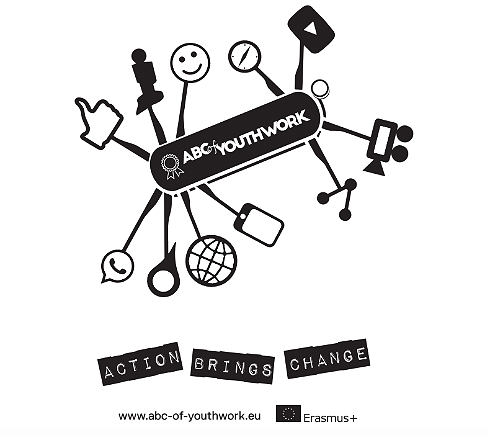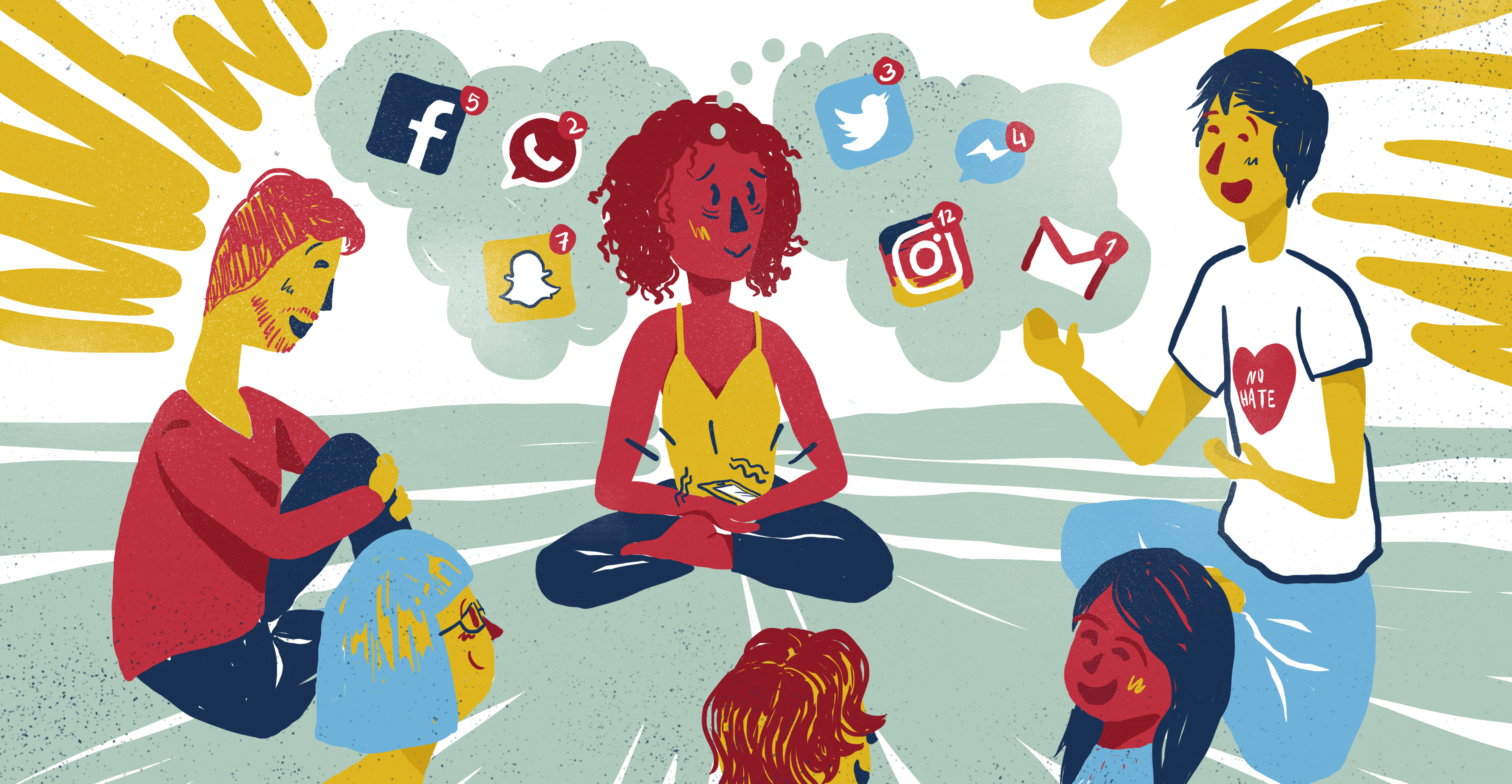 New realities – a new mission for youth workers?
New realities – a new mission for youth workers?
The youth workers who participated in our research have an ambiguous approach towards the presence of the internet and new technologies in their work. They are aware that social media provides necessary channels of communication and is an inseparable part of young people’s lives today, but still they question its benefits, and some of them are hesitant towards its usage in youth work.
The youth workers interviewed named numerous advantages of using the internet in youth work and underlined its potential. Among others, new technologies make many aspects of communication easier with young people. The internet is an important tool for the promotion and dissemination of the youth work results, especially through social media. Using new technologies helps young people to develop a whole range of digital competences, through entrepreneurship and a sense of initiative to fundraising and implementing their own ideas.
At the same time, youth workers see elements of concern in the use of new technology by young people. They believe that overuse of the internet has a negative influence on interpersonal relationships. Youth workers observe difficulties with face-to-face communication among young people, especially with expressing their emotions and feelings. It happens that young people lose concentration during activities owing to simultaneous communication through different smartphone applications. One of the youth workers in the study told us about a situation when young people were chatting with each other using communicators on smartphones, even though they were participating in an activity together in the same room. He found it frustrating and struggled with finding the solution. Moreover, young people are believed to lack the ability to think critically and reflect on what they see and read online.
Youth workers feel a bit lost and find it difficult to adapt their work to the rapidly changing technology that young people use. One of the interviewees admitted that he takes away young people’s smartphones before the activity, which is controversial. In general, youth workers admitted the benefits stemming from diverse digital tools, simultaneously warning against them becoming the “goal” of youth work activities:
 The new technologies can be a useful and valid support tool to traditional ways of recruitment, but cannot replace them or become the main tool. Use the new digital technologies as work tools, giving value to the process, without letting them get too much importance: they are and should remain tools and not goals of the activities. (Youth worker, 40-year-old man, Italy)
The new technologies can be a useful and valid support tool to traditional ways of recruitment, but cannot replace them or become the main tool. Use the new digital technologies as work tools, giving value to the process, without letting them get too much importance: they are and should remain tools and not goals of the activities. (Youth worker, 40-year-old man, Italy)
In light of both the advantages and disadvantages of internet usage, youth workers notice that they need new skills, as well as new aims appearing for them to accomplish in their work. Developing their own digital skills would allow them to better understand young people’s realities. It is not only about admitting to the importance of new media in their lives, but also about knowing which websites, social media and applications are popular among them and getting acquainted with those tools and applications. Youth workers need to dedicate some time to reflect on why young people use them and what they look for in a specific medium. The urgency to better understand young people’s social worlds is expressed in the following quote:
 Young people communicate through social media, but also talk to each other face to face about what happens in digital spaces: about published posts, about photos uploaded and the thoughts that they convey … If you are an educator YOU HAVE to understand what is happening on the smartphone of a young person. You have to be an educator also in the digital world because the DIGITAL IS REAL. (Youth worker, 38-year-old man, Italy)
Young people communicate through social media, but also talk to each other face to face about what happens in digital spaces: about published posts, about photos uploaded and the thoughts that they convey … If you are an educator YOU HAVE to understand what is happening on the smartphone of a young person. You have to be an educator also in the digital world because the DIGITAL IS REAL. (Youth worker, 38-year-old man, Italy)
An important goal for youth workers should be ensuring that young people develop their digital literacy skills, which are essential for full participation in a technology-based society. But some youth workers see a new mission for youth work: showing young people the value of the world outside the internet, the opportunities that it offers and the importance of face-to-face meetings:
 I think young people have never needed leaders so much as they need them now. There is a bigger need for youth work, because the picture in young people’s heads, based on images, is totally different from reality. They need reality; they need people who will know how to introduce this reality to them. To be with them. (Youth worker, 36-year-old woman, Poland)
I think young people have never needed leaders so much as they need them now. There is a bigger need for youth work, because the picture in young people’s heads, based on images, is totally different from reality. They need reality; they need people who will know how to introduce this reality to them. To be with them. (Youth worker, 36-year-old woman, Poland)






